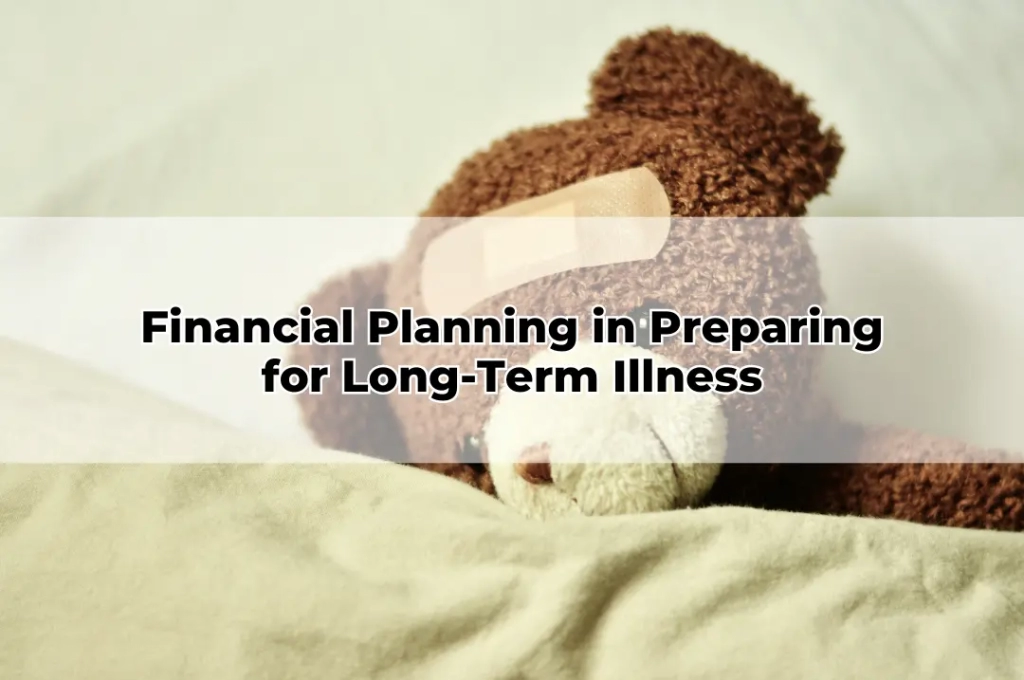Financial Planning in Preparing for Long-Term Illness
Table of Contents
ToggleFinancial planning is an essential tool for securing one’s future, especially when facing the possibility of long-term illness. A structured financial strategy ensures stability, mitigates stress, and preserves wealth. For individuals and families, understanding how to prepare financially for chronic conditions or unexpected health challenges is crucial. This blog post explores the role of financial planning in preparing for long-term illness and how engaging with a Toowoomba Financial Adviser can safeguard financial well-being.
Understanding the Financial Implications of Long-Term Illness
A long-term illness can have a significant financial impact, affecting income, lifestyle, and retirement plans. Medical expenses, ongoing treatments, and specialised care often result in increased costs. Without proper financial planning, individuals may find themselves struggling to cover these expenses while maintaining their standard of living. Financial Planning Toowoomba can help individuals anticipate these costs and implement strategies to manage them effectively.
The Importance of Early Financial Planning
Proactive financial planning is key to minimising financial stress in the event of a long-term illness. Early preparation allows individuals to accumulate savings, secure appropriate insurance coverage, and establish an investment strategy that accounts for potential health-related expenses. Consulting an Online Financial Adviser can provide tailored guidance for structuring finances in anticipation of future health concerns.
Building an Emergency Fund for Health-Related Expenses
An emergency fund serves as a financial buffer against unexpected medical costs. Ideally, individuals should aim to save at least six to twelve months’ worth of expenses in an accessible account. This financial cushion helps cover immediate medical bills, loss of income, or additional caregiving expenses, reducing reliance on credit or depleting long-term investments.
The Role of Income Protection and Disability Insurance
Income protection insurance ensures that individuals receive a portion of their salary if they are unable to work due to illness. Disability insurance, on the other hand, provides a lump sum or ongoing payments to cover medical expenses and lost income. Assessing and securing appropriate coverage through Financial Planning Toowoomba can offer peace of mind and financial security.
Superannuation and Long-Term Illness Considerations
Superannuation plays a pivotal role in funding long-term illness costs, particularly for those nearing retirement. Many super funds offer Total and Permanent Disability (TPD) insurance, which provides financial relief if an individual is unable to work. Understanding superannuation withdrawal options and taxation implications ensures that funds are utilised efficiently to cover health-related expenses.
Estate Planning and Power of Attorney Arrangements
A comprehensive estate plan safeguards an individual’s financial interests and ensures their wishes are respected. Appointing a power of attorney allows a trusted individual to make financial and medical decisions in the event of incapacitation. Engaging a Toowoomba Financial Adviser to assist with estate planning ensures that all legal and financial matters are structured effectively.
Managing Investments for Stability and Growth
A long-term illness can alter risk tolerance and investment goals. Reallocating assets into lower-risk investments or income-generating portfolios can provide financial stability. Working with an Online Financial Adviser can help tailor an investment strategy that aligns with health-related financial needs while maintaining growth potential.
Government Support and Aged Care Financial Advice
Australia offers various government support schemes for individuals facing long-term illness, including the National Disability Insurance Scheme (NDIS) and Centrelink benefits. Understanding eligibility criteria and accessing these resources can significantly alleviate financial burdens. Engaging with an expert in Retirement Financial Advice ensures that individuals maximise available government assistance.
Budgeting and Cash Flow Management During Illness
A well-structured budget helps manage ongoing expenses while ensuring financial sustainability. Prioritising essential expenses, cutting unnecessary costs, and leveraging available support networks can improve cash flow. Regular financial reviews with a Toowoomba Financial Adviser ensure that budgeting strategies remain effective amid changing health conditions.
Preparing for the Financial Impact on Family Members
Long-term illness often affects not only the individual but also their family members. Caregiving responsibilities may require adjustments to employment, leading to lost income. Financial planning can incorporate contingency plans to support family members, ensuring their financial well-being remains intact despite unforeseen health challenges.
The Role of Financial Advisers in Long-Term Illness Planning
Engaging a professional financial adviser provides access to expert guidance on wealth management, insurance, estate planning, and investment strategies. A Toowoomba Financial Adviser specialises in tailoring financial plans to accommodate long-term illness, ensuring that individuals and their families maintain financial security throughout the journey.
Conclusion
Long-term illness can be financially daunting, but with proactive financial planning, individuals can mitigate financial risks and secure their future. From building emergency funds and securing insurance to managing investments and estate planning, a structured approach ensures financial resilience. Consulting a professional for Financial Planning Toowoomba provides tailored solutions to navigate the complexities of long-term illness, ensuring stability, peace of mind, and financial security for individuals and their families.









